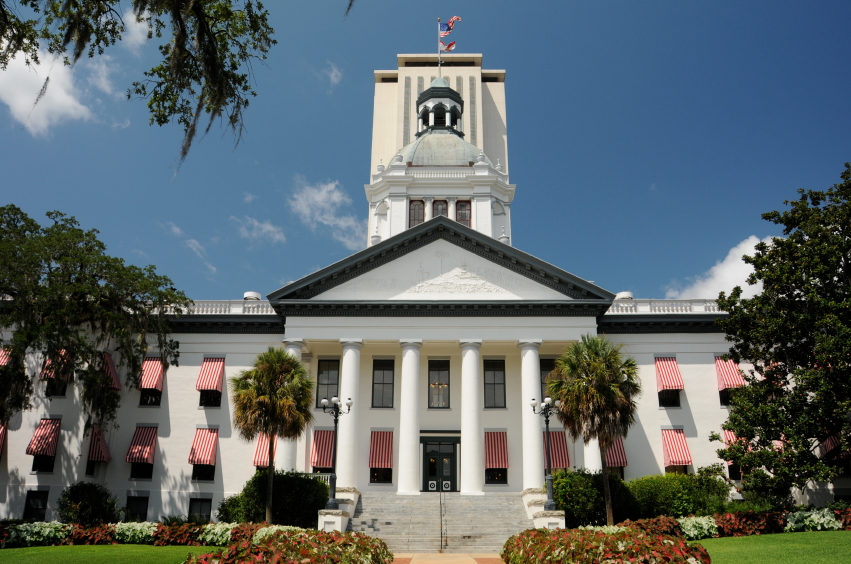BLOG
The 2013 Florida legislative session will soon kick into high gear, and with it will come another round of bills related to Florida community associations. This article provides a brief overview of bills that have been filed in the Florida Legislature which aim to create new laws that will impact condominium, cooperative and homeowner associations in Florida.
SB 596: This bill is aimed at Homeowners Associations. It seeks to rename the Florida Division of Condominiums to include HOAs and would also require annual funds collected by the Division relating to the regulation of HOAs to be deposited into the Florida Condominium, Homeowners Association, Timeshares and Mobile Homes Trust Fund. The bill further seeks the establishment of the Office of the Community Association Ombudsman.
HB73 / SB436: These companion bills are the primary vehicles pushing for changes to the laws that govern Florida HOAs, condominiums and cooperatives. Once again, the bills aim to create exemptions of certain elevators from legally mandated code update requirements. If adopted, the law would delay mandated updates to elevators in some community association buildings for implementation of Phase II Firefighters Service until the elevator is replaced or requires major modification.
The bills also seek to remove requirements for a unit owner vote to approve two-year terms for condominium directors and would allow such terms if provisions for them are included in an association’s by-laws or articles of incorporation. Procedural changes are also proposed aimed at clarifying the posting of notices for meetings when using broadcast notices, and at the retention of condominium board member certification certificates for 5 years or for the duration of a director’s uninterrupted tenure.
 These bills include proposed revisions to community association laws related to election dispute arbitrations so that such proceedings must be commenced within 60 days from the announcement of election results. New procedures and deadlines for filing recall petitions are also proposed in the event that the association fails to do so timely. The new procedures would create a limit to the nature of the proceeding and would provide a window of time for filing recalls (i.e., not within 60 days of a scheduled re-election or before 60 days from election of the director(s) sought to be recalled).
These bills include proposed revisions to community association laws related to election dispute arbitrations so that such proceedings must be commenced within 60 days from the announcement of election results. New procedures and deadlines for filing recall petitions are also proposed in the event that the association fails to do so timely. The new procedures would create a limit to the nature of the proceeding and would provide a window of time for filing recalls (i.e., not within 60 days of a scheduled re-election or before 60 days from election of the director(s) sought to be recalled).
The legislative changes proposed in this session further seek to expand upon the existing statutory protections related to hurricane shutters and glass installed in condominium buildings by broadening the scope to also reference hurricane “protection” as well as new provisions which are submitted to implement deadlines to add phases in phase condominiums and to clarify developers’ ability to create “condos within condos.”
The proposed legislation included in these bills further aims to establish clarifications pertaining to the ability of community associations to suspend the use of common elements due to owners’ or residents’ noncompliance, and the bills also seek to implement restrictions on an association’s ability to suspend use rights for noncompliance to more closely resemble the common areas that are not able to be suspended for non-payment.
These bills contain proposed legislation that would clarify that lawyer-client privileged and work-product privileged documents are not reviewable by owners in HOAs and cooperatives, thus creating other clarifications to official records provisions to more closely resemble the provisions applicable to condominiums. Lastly, proposed changes are included to create certain situations limiting the requirement to obtain mortgagee consents for some votes in cooperatives and HOAs.
SB120/HB175: These companion bills were filed on behalf of developer interests and were proposed to address concerns regarding Interstate Land Sales Act compliance matters to clarify when a condominium comes into existence. These bills contain technical revisions that practitioners will have to be mindful of as many deadlines and timeframes currently included in the Condominium Act commence upon the filing of the Declaration of Condominium – a critical event that the proposed legislation seeks to modify.
HB87: This bill includes proposed revisions aimed at streamlining mortgage foreclosure cases. Many hope that the enactment of this bill will result in procedures that may be used by community associations to assist in having mortgage foreclosures expedited. Expediting mortgage foreclosures is expected to minimize the time associations typically wait before a paying owner is placed in legal title to an otherwise non-performing unit.
All community association stakeholders are encouraged to keep a watchful eye on the progress of these and other bills that have been filed given that their possible enactment may result in significant changes to the Florida community association arena. Our other community association attorneys and I will continue to monitor and write about the outcomes for these and other new legislative measures for the 2013 Florida legislative session, and we encourage community association members, directors and property managers to submit their email address in the subscription box at the top right of this blog in order to automatically receive all of our future articles.

